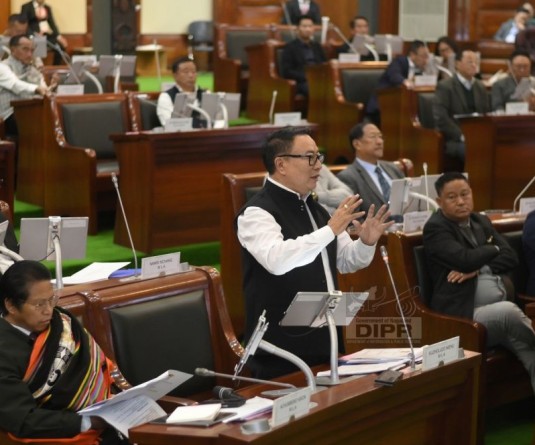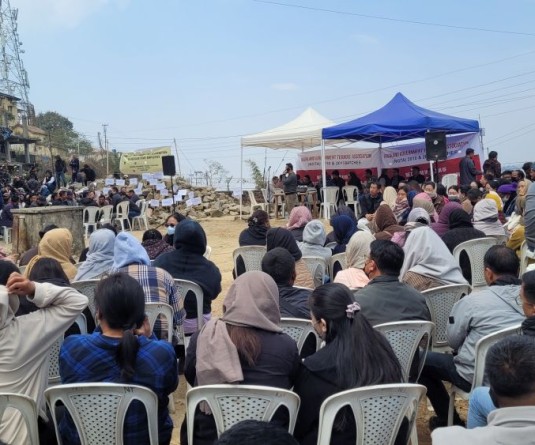
DIMAPUR, JANUARY 11 (MExN): The Longmisa Gazatted Officers Forum (Dimapur unit) organised a seminar for parents at Ana-ki conference hall, Khermahal, Dimapur on January 11. The objective of the seminar was to make parents aware of their children’s needs - ‘role of parents in children’s education’, in particular.
Pro Vice Chancellor of Nagaland University, Prof. A. Lanununungsang Ao was the resource person. According to Prof. Ao, as responsible parents, understanding the needs and aspirations of children is paramount. He said that children of today are more aware, of their wants and aims. The role of parents therefore must be to measure and assess their limits and talent early on, while working towards cultivating the faculty inherent. Waiting for adolescence to decide their future will be too late, he said.
As a child grows, several factors come into play, which ultimately affects the child’s intellect and perception. This is where the role of parents, as guardians and as role models is crucial, Prof. Ao said. Stating that amount of time spent with children influences how and what he or she learns, he said that parents should establish a foundation of friendship and sharing, while devoting quality time.
When a child learns from a positive role model, it cuts down on the time that the child would need to spend learning from other influencing factors or negative external influences, Prof. Ao said.
Moreover, he said that parents should be well aware of the prevailing system of education, starting from primary to the secondary level. It is pertinent, as a parent, to understand a child’s academic interests, so that the ward can land in the right institution conducive to his or her calling, he said.
Further, Prof. Ao touched on the importance of mother-tongue. Expressing concern at the increasing trend of Naga households conversing in Nagamese, he said the trend has become a threat to identity. In this regard, he urged parents should lead by example and discourage the use of Nagamese in the household, while encouraging conversation in one’s mother-tongue.






